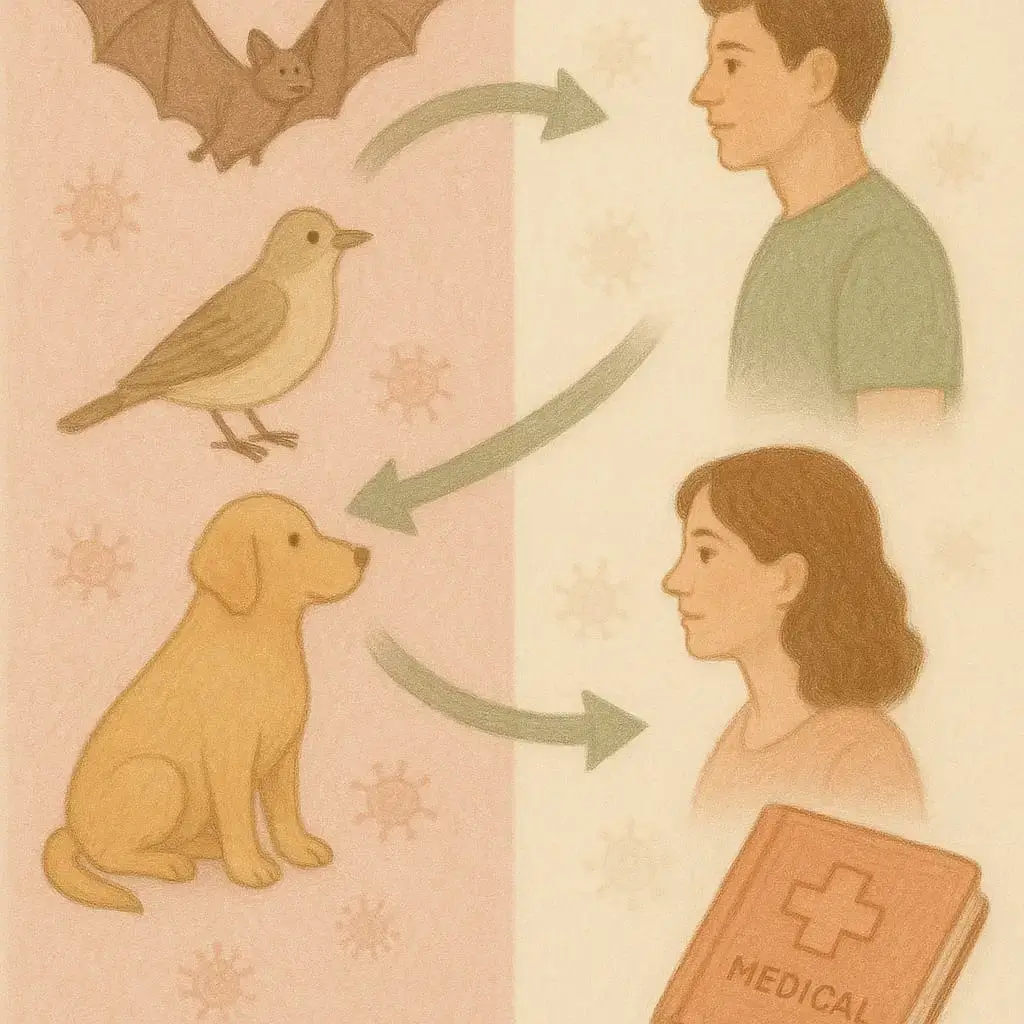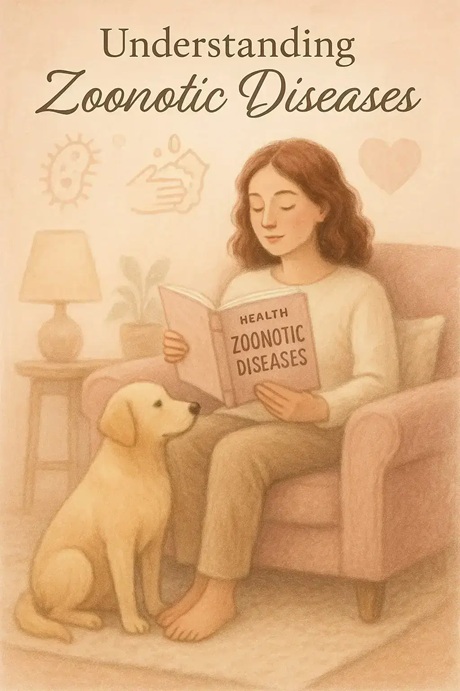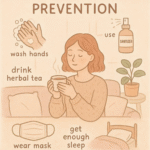Introduction
Zoonotic diseases may sound complex, but they’re surprisingly common—and increasingly important to understand. Zoonotic diseases are illnesses caused by viruses, bacteria, or parasites that can be transmitted from animals to humans. From past pandemics to mild infections, these diseases affect millions globally.
At Healthy Harbinger, we believe awareness is the first step toward wellness. In this post, you’ll gently learn what zoonotic diseases are, how they spread, and—most importantly—how to protect yourself and your family using natural wellness routines and simple healthy habits that align with your lifestyle.

What Are Zoonotic Diseases?
Also known as zoonoses, these diseases are infections that pass between animals and humans. They can be viral, bacterial, parasitic, or fungal in nature.
Examples of common zoonotic diseases:
- Rabies
- Influenza (including swine flu and bird flu)
- Lyme disease
- Salmonella
- COVID-19
- Ebola
These diseases can vary in severity—from mild, treatable infections to outbreaks with global health implications.
Learn how unknown viruses like Disease X may emerge from zoonotic sources in our Disease X Virus post.
How Do Zoonotic Diseases Spread?
Zoonoses can be transmitted in many ways—some direct, others indirect. Here are the most common methods:
| Transmission Type | How It Happens |
|---|---|
| Direct Contact | Involves touching animals, their bodily fluids, or any open sores they may have |
| Indirect Contact | Touching contaminated surfaces, bedding, or soil |
| Vector-borne | Bites from insects like ticks, mosquitoes, or fleas |
| Foodborne | Consuming undercooked meat, unpasteurized milk, or contaminated water |
| Airborne | Breathing in dust particles or droplets carrying pathogens |
Why Understanding Zoonoses Matters for You
Zoonotic diseases aren’t just rare rural risks—they’re part of everyday life, especially in a globally connected world.
But instead of living in fear, it’s more empowering to adopt gentle preventive habits.
In fact, awareness supports:
- Better immune system support
- Healthier daily habits
- Safer behavioral health strategies
- Conscious personal choices
Build your immunity with soft daily routines in our Health is Wealth post.
Holistic Ways to Stay Protected
You don’t need extreme measures to guard your health—just consistent care. Below are gentle, everyday ways to prevent zoonotic infections:
Daily Prevention Tips
- Wash hands frequently with mild, skin-safe soap
- Cook meat thoroughly and avoid raw dairy
- Avoid touching stray animals or wildlife directly
- Stay updated on travel advisories and vaccines
- Use eco-safe bug repellents in high-risk areas

Immune-Boosting Foods to Add to Your Diet
One of the best defenses against any infection is a strong immune system. Here’s a quick list of foods that support immunity:
| Food | Why It Helps |
|---|---|
| Citrus fruits | Naturally rich in vitamin C, they help boost and protect your immune system |
| Garlic | Natural antimicrobial properties |
| Ginger & turmeric | Reduce inflammation |
| Yogurt | Supports gut health & microbiome |
| Leafy greens | High in antioxidants and fiber |
Want more food-based tips? Check out our immune-boosting diet guide.
Lifestyle Strategies to Reduce Exposure
Simple, cozy tips for daily prevention:
- Keep a pastel-hued water bottle with a lid when going out
- Clean your shoes after coming indoors
- Store your fresh produce in clean containers
- Schedule seasonal check-ins with your doctor
- Track any travel exposure in a wellness planner

These routines not only support disease prevention but also bring a calming sense of structure to your day.
How Zoonotic Diseases Relate to Global Health
As urbanization increases and ecosystems shift, human contact with animals becomes more frequent—raising risk. Understanding zoonoses helps us:
- Support preventive healthcare policies
- Make more informed decisions
- Contribute to community health awareness
Curious how gentle nudges can improve your health habits? Explore our Nudge Improving Decisions post.
Ready to protect your health with ease?
🌱 Bookmark this post, share it with someone you love, and subscribe to Healthy Harbinger for more calming, fact-based wellness advice.
💗 Start small, stay safe, and be gently informed.
Frequently Asked Questions (FAQs)
What are zoonotic diseases?
These infections spread from animals to humans and include illnesses like rabies, bird flu, and Lyme disease.
How can I prevent zoonotic diseases?
Practice hygiene, avoid raw meat/dairy, stay vaccinated, and minimize direct contact with unknown animals.
Are zoonotic diseases always serious?
Not always—some are mild, while others (like COVID-19 or Ebola) can be life-threatening.
What animals spread zoonoses?
Bats, rodents, birds, livestock, and even pets can sometimes carry zoonotic infections.
Why are zoonoses increasing?
Climate change, urbanization, global travel, and deforestation are increasing human-animal interactions.
Discover More:
- Health is Wealth: Nourishing Your Body for a Resilient Life
- Nudge Improving Decisions for Better Health Habits
- Disease X Virus: Prevention, Causes & Protection
- Digital Detox for Mental Clarity: A Gentle Guide
About The Author:
Written by Abrish Mobeen
From immunity to infectious disease awareness, Abrish shares holistic, woman-friendly health education on Healthy Harbinger. She believes knowledge is one of the most powerful tools for protection and peace of mind.



